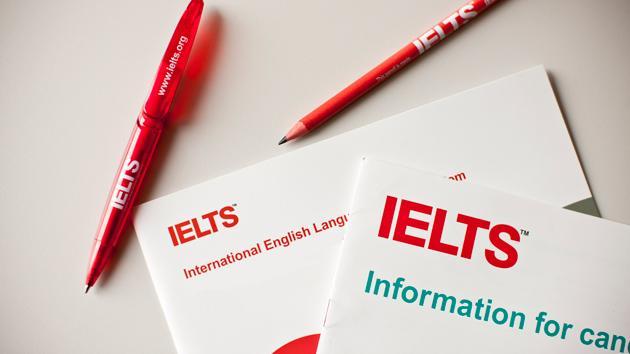আইইএলটিএস টেস্ট! এই পরীক্ষার কথা শুনলেই অনেকের গায়ে জ্বর চলে আসে। কিন্তু আমার মতে এই পরীক্ষা যতটা না আপনার ইংরেজি জ্ঞান যাচাই করে, তার চেয়ে বেশি যাচাই করে আপনি কত “স্মার্টলি” এই জ্ঞান ব্যবহার করতে পারছেন তা। তাই এই সিরিজিে আমরা স্মার্ট হব এবং আয়ত্ব করে ফেলব “স্মার্ট আইইএলটিএস”! 🙂
আইইএলটিএস রিডিং এ দেয়া তিনটি প্যাসেজ/সেকশন থেকে সর্বমোট ৪০টি(চল্লিশটি) প্রশ্নোত্তর করতে হয়। এই প্রশ্নগুলোর প্রায় ১১ টি ধরণ হতে পারে। আজকে আমরা এরকম এক ধরণের প্রশ্ন এবং কীভাবে উত্তর করা যায়, তা নিয়ে আলোচনা করব। এই সিরিজটি শুধুমাত্র তাঁদের জন্য যাঁদের হাতে মাত্র ২ সপ্তাহ সময় এবং এভারেজ IELTS Score 6 বা 7 পেলেই চলবে। তাহলে চলুন, শুরু করা যাক।
আইইএলটিএস রিডিং সেকশন
| সময় | ৬০ মিনিট (উত্তর লেখার সময়সহ) |
| কয়টি বিভাগ/প্যাসেজ থাকে? | ৩টি; সবগুলো মিলিয়ে শব্দ সংখ্যা ২১৫০ থেকে ২৭৫০ হতে পারে। |
| প্রশ্ন সংখ্যা | ৪০টি (চল্লিশটি) |
| মার্কস/নম্বর | প্রতিটি সঠিক উত্তরের জন্য ১ মার্কস দেয়া হয়। আপনার ফাইনাল রিডিং স্কোর দেয়া হবে ব্যান্ড হিসেবে। যেমনঃ 4.5 কিংবা 7 ইত্যাদি। |
কীভাবে করবেন True/False/Not given?
আপনাকে একটি বাক্য দিয়ে প্রশ্ন করা হবে এটা True নাকি False নাকি Not given!
True: বাক্যটি যদি প্রদত্ত প্যারাগ্রাফ/প্যাসেজে দেয়া তথ্যের সাথে “সহমত” করে, তাহলে আপনাকে True লিখতে হবে। এটি লিখবেন উত্তরপত্র (answer sheet) তে। একদম সোজা! তাই না? 🙂
False: এটি লিখবেন যখন বাক্যে যে তথ্যটি দেয়া হয়েছে তা প্যাসেজ/প্যারাগ্রাফে দেয়া তথ্যের সাথে “বিপরীত” সুরে কথা বলবে।
Not given: যখন বাক্য প্রদত্ত তথ্যটি প্যাসেজ/প্যারাগ্রাফে দেয়া তথ্যের সাথে “সহমত” কিংবা “বিপরীত কথা” কোনটাই বলে না কিংবা প্যারাগ্রাফ থেকে এটা বের করা যদি সম্ভব না হয় যে বাক্যটি সত্য/মিথ্যা, তখন Not given ব্যবহার করা যায়।
সাধারণত যেভাবে ভুল হয়ঃ
- অনেকেই প্রথমে বাক্য থেকে Key Word খুঁজে নিয়ে সেটা প্যারাগ্রাফে খোঁজার চেষ্টা করেন। কিন্তু প্রায় সময়ই হুবহু শব্দটি থাকে না। প্রতিশব্দ বা Synonym দেয়া থাকে। তাই সাবধান!
- অনেকেই শুধু শব্দ খুঁজে পেলেই তা True হিসেবে ধরে নেন। এটা বড় একটি ভুল। আপনাকে ঐ বাক্যটি সম্পূর্ণ পড়ে বুঝতে হবে কী বলা হয়েছে। শুধু Key Word খুঁজে পেলেই তা True হতে পারে না।
- বিশেষ সতর্কতাঃ কোন একটি টপিকে আপনি হয়ত এক্সট্রা কোন তথ্য বা সাধারন জ্ঞান জেনে থাকতে পারেন। কিন্তু সেই তথ্যটি কখনোই পরীক্ষার খাতায় ব্যবহার করতে যাবেন না। শুধুমাত্র প্রদত্ত প্যাসেজ বা প্যারাগ্রাফে দেয়া তথ্য অনুসারে কাজ করতে হবে।
এই ধরণের প্রশ্ন দিয়ে কোন দক্ষতা পরখ করা হয় তা হলঃ আপনি কোন তথ্য সঠিক/ভুল নাকি দেয়া নেই তা কত দ্রুত প্যারাগ্রাফ/প্যাসেজ পড়ে উপলব্ধি করতে পারেন।
তাহলে কীভাবে উত্তর করবেন? টিপ্সঃ
- যে বাক্যটি দেয়া হয়েছে তা সম্পর্কে আগে কোনকিছু জানা থাকলে তা মন থেকে বাদ দিন। প্যারাগ্রাফে কী আছে দেখুন।
- যদি প্যারাগ্রাফে বাক্য প্রদত্ত তথ্যটি খুঁজে না পান, তাহলে Not given দিন।
- যদি প্যারাগ্রাফ পড়ে না বুঝেন, বাক্যটি True/False, তাহলে Not given দিন।
- বাক্যটি পড়ে সম্পূর্ণ অর্থ বোঝার চেষ্টা করুন। এরপর সেই বোধ থেকে কোন কিছু মিলে কিনা তা প্যারাগ্রাফে খুঁজে দেখুন। শুধুপাত্র Key Word এর পেছনে ছুটে সময় নষ্ট করবেন না। সম্পূর্ন বাক্যটি কী বলে তা বেশি গুরুত্বপূর্ণ।
- বাক্যে এধরণের কোন শব্দ আছে কিনা দেখবেন। যেমনঃ some, all, only, mainly, often, always, occasionally, claimed, believed ইত্যাদি। উদাহরণঃ EU often buys products from Bangladesh. আর EU only buys products from Bangladesh. এই বাক্য দুটির মানে একই নয়। তেমনিভাবেঃ He believed that Rony is a tailor. আর Rony is a tailor. এই বাক্য দুটির মানেও একই নয়।
- সাধারণত উত্তরগুলোর মাঝে অন্তত একটি করে True/False/Not given থাকবে। যদি অন্তত একটি True/False/Not given না থাকে, তাহলে আপনি হয়ত ভুল করছেন। (তবে দয়া করে, এটিকে বেদ বাক্য মনে করবেন না।)
উদাহরণঃ
মনে করুন এই বাক্যটি দেয়া আছে প্যারাগ্রাফেঃ “Chiles originate in South America and have been eaten for at least 9,500 years.”
সেই হিসেবে নিচের বাক্যগুলো True/False/Not given দেয়া হলঃ
- Chiles come from South America – T (এই তথ্যটি সরাসরি দেয়া আছে।)
- People began eating Chiles in the last few centuries – F (এই তথ্যটি ভুল। এখানে ৯৫০০ বছরের কথা বলা আছে।)
- South Americans were the first people to start eating Chiles – NG (এই ধরণের কোন তথ্য দেয়া হয় নি বা পড়ে বোঝা যাচ্ছে না।)
এখন একটি প্যারাগ্রাফ দেয়া হবে, এরপর প্রশ্ন আকারে বাক্য দেয়া হবে। যাচাই করে দেখুন কতটুকু পারলেন। আর না বুঝলে প্রশ্ন করুন। আমরা উত্তর করব। উত্তর থাকবে প্রথম কমেন্টে।
Chilies
The reason for the chili’s “hotness” lies in a chemical called Capsaisin. Capsaisin causes temporary irritation to the trigeminal cells, which are the pain receptors in the mouth, nose and throat. After the pain messages are transmitted to the brain, endorphins, natural pain killers, are released and these not only kill the pain but give the chili eater a short lived natural high. Other side effects include: an increased heart rate, a running nose and increased salivation and sweating, which can have a cooling effect in hot climates.
The reason for the presence of Capsaisin is thought to be to deter animals from eating the fruit. Only mammals feel the burning effects; birds feel nothing. As birds are a better method of distributing the seeds, which pass intact through their guts, Capsaisin would seem to be a result of natural selection.
The smaller chilies tend to be the hottest. This may reflect the fact that they tend to grow closer to the ground and are therefore more vulnerable to animals. The heat of a chili is measured on the Scoville scale. The hottest types such as the Habenero and the Scotch Bonnet rate between 100,000 and 300,000, the world famous Tabasco sauceÒ rates at 15,000 to 30,000, about the same as the Thai prik khee nu, while the popular Jalapeno is between 5,000 and 15,000. Powdered chili is 500 to 1,000 and the mild capsicins and paprikas can range between 100 and 0.
(325 words, Courtesy: ieltsbuddy)
Question:
- Chilies became popular as soon as they were brought into Europe.
- Capsaisin damages the mouth.
- Chilies can be part of a birds diet.
- All large chilies grow high off the ground.
- People breed chilies for their heat.
উত্তর দেয়া হল প্রথম মন্তব্যে। তবে আগে নিজে চেষ্টা করুন। ধন্যবাদ।
আইইএলটিএস রিডিং স্ট্র্যাটেজি ভিডিও
আরো পড়তে পারেনঃ
- আইইএলটিএস রিডিং – তথ্য মেলানো (Matching information)? – পর্ব ২/১১
- আইইএলটিএস – IELTS Preparation: Part-1
- আইইএলটিএস – IELTS Preparation: Part-2
- আইইএলটিএস – IELTS Preparation: Part-3


IELTS True False Not Given – Answers Discussion
Question 1
Chilies became popular as soon as they were brought into Europe – T
After their introduction to Europe they were an immediate sensation and were quickly incorporated into the diet.
There two statements are clearly saying the same thing. Notice the use of synomyms:
Became popular = sensation
As soon as = immediately
Brought into = introduced
___________________________________________________
Question 2
Capsaisin damages the mouth – F
Capsaisin causes temporary irritation the trigeminal cells.
This is false as the statement says ‘damage’. This is not the same as a ‘temprary irritation’.
___________________________________________________
Question 3
Chilies can be part of a birds diet – T
Only mammals feel the burning effects; birds feel nothing. As birds are a better method of distributing the seeds, which pass intact through their guts
This is true as this section in the reading clearly tells us birds feel nothing (when they eat them) and they distribute them around when it leaves their body. So clearly chiles are eaten by birds. In other words, they can be a part of a birds diet.
___________________________________________________
Question 4
All large chilies grow high off the ground – NG
The smaller chilies tend to be the hottest. This may reflect the fact that they tend to grow closer to the ground and are therefore more vulnerable to animals.
We are told here that small chiles grow closer to the ground. It can be assumed then that many of the large ones are higher off the ground.
However, it says ‘all large chiles’. We are not given any information to say all of them grow high off the ground. It’s possible some don’t, so we don’t know which means it is Not Given.
___________________________________________________
Question 5
People breed chilies for their heat – NG
The heat of a chili is measured on the Scoville scale.
Again, this is Not Given. We are given some information about heat in this sentence and those that follow.
But these are just descriptions about how they are hot. We are not told specifically that this is the reason they are breeing them.
this is my first test regarding IELTS without any prior preparation and i scored 5/5 in just 6mins (yay). Thanks for sharing.